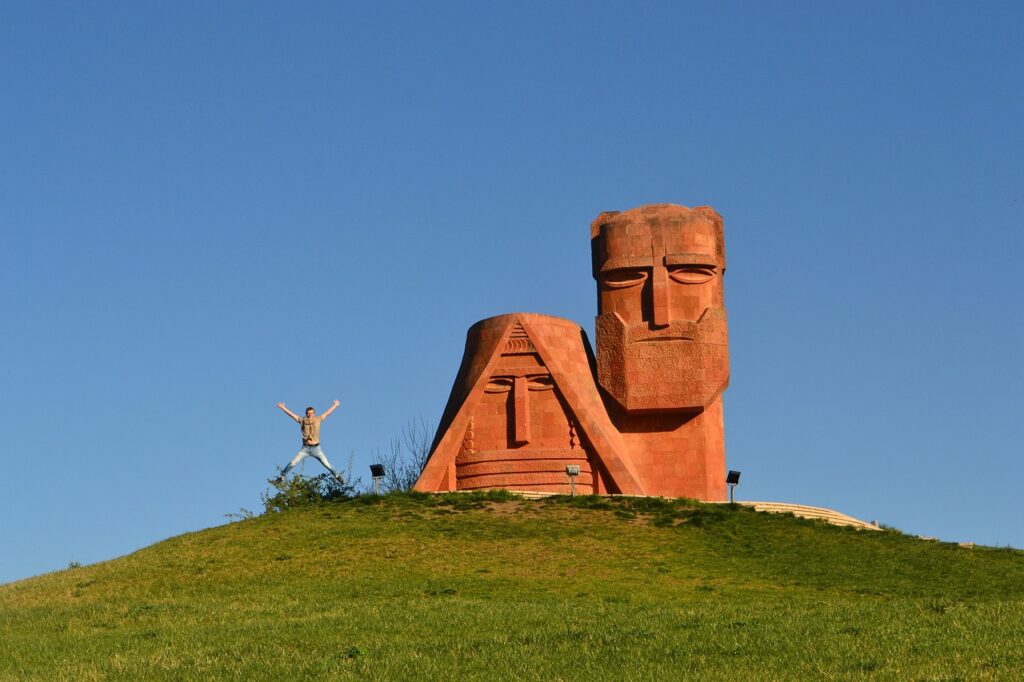Hugh Pope in Transitions Online
28 April 2009
Transitions Online
These two old enemies should not get sidetracked as they look for a way to come to terms.
After nearly a century of conflict and animosity, Turkey and Armenia are now close to a breakthrough. An agreement on the table would establish diplomatic relations, open the border, and set up a bilateral commission that will include an element to address the traumatic history of the two peoples. This is a historic opportunity for normalization that the leaders of both countries should seize.
The stalemated Armenia-Azerbaijan conflict over Nagorno-Karabakh may yet impede progress, a situation that both sides should do their best to avoid. Plans to establish diplomatic relations between Turkey and Armenia have already been on hold since 1993, when ethnic Armenian forces captured most of the Armenian-majority enclave of Azerbaijan and advanced into a large surrounding area of Azerbaijan. To show solidarity with its ethnic and linguistic cousins in Baku, Ankara closed a railway line that was then the only transport link between Turkey and Armenia. Ever since, Ankara’s condition for improving bilateral relations has been based on Armenian troop withdrawals from occupied territory in Azerbaijan.
Baku is nervous this condition may be lifted and says it may respond by restricting Turkey’s participation in the expansion of Azerbaijani energy exports and selling natural gas to Russia instead. But Azerbaijan ought to reconsider its position: bilateral détente between Turkey and Armenia could ease Yerevan’s fears of encirclement and help Baku recover its lost territory better than this current stalemate, from which nobody has gained anything for the past 16 years.
On its side, Armenia should be aware that, even if Turkey compromises by delinking the opening of the border from Nagorno-Karabakh withdrawals, any further normalization will be unsustainable if there is no progress in its disputes with Azerbaijan. Armenia and Azerbaijan should in any case adopt the Organization for Security and Cooperation in Europe Minsk Group’s basic principles for settlement of the Nagorno-Karabakh conflict, which include the eventual withdrawal of Armenian forces from territories ringing Nagorno-Karabakh, the return of residents displaced during the fighting, and a referendum to determine the enclave’s status.
A TORTURED HISTORY
A positive trend in Turkey-Armenia relations, including a firm and public Armenian acceptance of Turkey’s territorial integrity, will also do much to encourage Turkey to be more open in its approach to the politicized debate over whether to call destruction of much of the Ottoman Armenian population in 1915 a genocide, as more than 20 countries have already done.
Decades of Turkish denial of Ottoman large-scale massacres and forced displacement of Armenians has changed in the past decade thanks to the efforts of Turkey’s intellectual elite. Continuing to prepare public opinion for truth and reconciliation is important. Universities in Turkey and Armenia should be encouraged to pursue broader research, preferably with third-party scholars, to agree on a common set of facts and archival resources. Both sides again should modernize history books and remove all prejudice from them.
This will help build on the progressively intense official dialogue, vigorous activity in civil society, and evolution in public opinion that have already transformed the Turkey-Armenia relationship. Turks’ and Armenians’ once uncompromising, bipolar views of history are significantly converging, showing that the deep traumas can be healed. This advance in bilateral relations demonstrates that a desire for reconciliation can overcome old enmities and closed borders. New trends are also apparent among the Armenian diaspora, where hardliners dominate the narrative, and the process has the support of outside powers such as the United States, the European Union, and Russia.
For Turkey, there are many other benefits to opening the Armenian border. Eastern Turkish towns are looking forward to trading directly with Armenian counterparts, and to welcoming a new generation of Armenian tourists to the many Armenian heritage sites in eastern Turkey. Turkey’s image in Europe will improve and give it better arguments when it comes to the painful issue of genocide recognition resolutions in the United States and elsewhere. For Armenia, the benefits are considerable as well. Its railroads and electricity networks will have profitable new partners, trade routes will become less vulnerable, and, strategically, Yerevan will have to worry less about a threat from Turkey.
Despite its risks and possible pitfalls, the prospects for normalization of Turkish-Armenian relations are better than they have been for decades. Most importantly, both sides see the advantages of this process. If borders are opened and trade restarts, all will gain – chiefly Armenia and Turkey but potentially Azerbaijan as well – in terms of economic strength and national security. For healthy progress on overcoming historic divisions, the focus needs to be on joint work in the present and the future.
Hugh Pope is the Turkey/Cyprus project director of the International Crisis Group.
Transitions Online
Source: www.crisisgroup.org
[Hugh Pope is author of “Turkey Unveiled: A History of Modern Turkey,” and also “Sons of the Conquerors: The Rise of the Turkic World” -HD]
